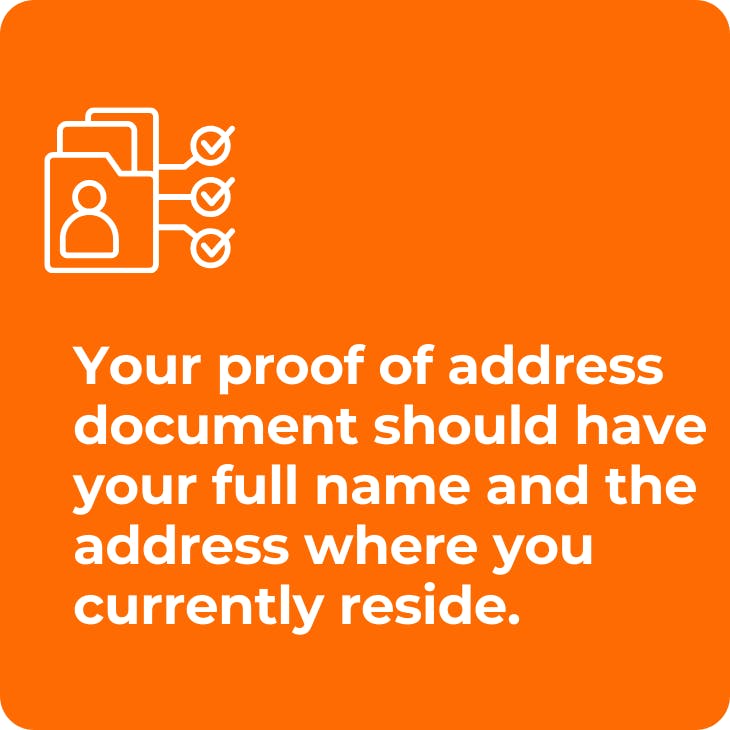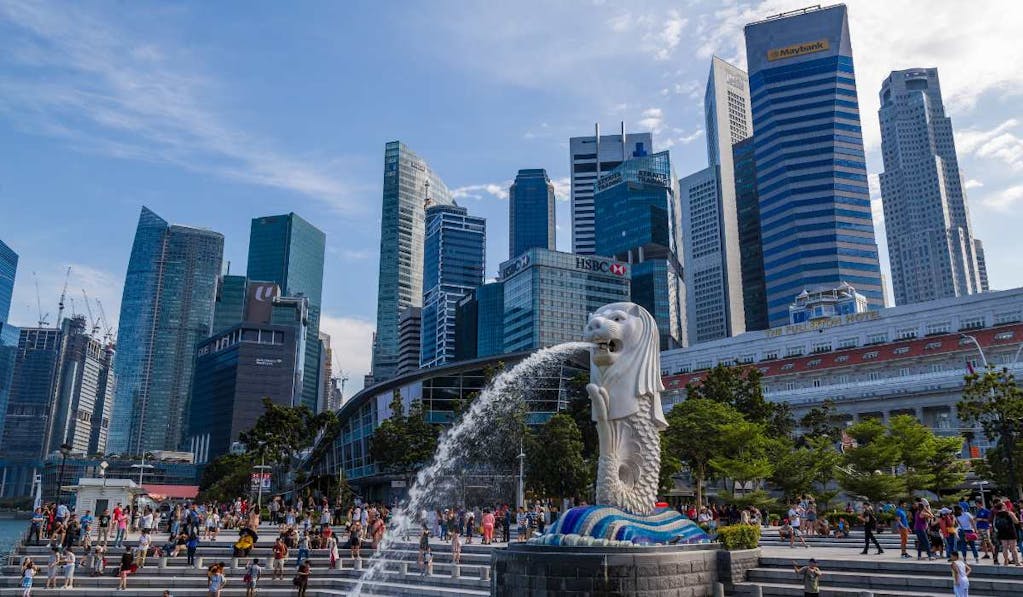Proof of address refers to documentary evidence that shows you reside in a particular country.
Both public and private organizations, including government agencies, require this information when you fill out any official forms.
Proof of address is essential for various official processes, such as opening bank accounts and applying for utilities.
Acceptable documents include utility bills, bank statements, letters from employers, tenancy agreements, and more.
Businesses need a physical registered office address, not a P.O. Box.
Items like commercial addresses and outdated documents are not accepted.
Specific documents are needed for non-residents.
What is common between opening a bank account, applying for a new mobile phone connection, and signing up for an insurance policy anywhere in the world? You can successfully complete these activities only when you furnish proof of address along with your application form.
The situation is no different in Singapore — whether you want to live in Singapore for work or to study, you need local address proof to open a bank account or apply for a utility. Even if you intend to carry on business in Singapore, a Singapore business address is a must to comply with the regulatory requirements.
So how do you go about gathering acceptable forms of address proof? Here’s a guide explaining what is an address proof document and what documents can you furnish in Singapore as proof of residence.
What Is Proof of Address, And Why Do You Need It?
Proof of address is exactly what it sounds like — it refers to documentary evidence that shows you reside in a particular country.
Both public and private organizations, including government agencies, require this information when you fill out any official forms and use it as a safeguard against any fraudulent activity.
Moreover, it also helps to identify whether the applicant resides in a country with extensive sanctions. For example, the Office of Foreign Assets Control (OFAC) of the US Treasury Department maintains a list of sanctioned countries. It prohibits any financial transactions with such counties without prior permission.
While it is impossible to create a comprehensive list of acceptable documents one can use to provide proof of residence, as a thumb rule, most organizations request documents that cannot be falsified easily or obtained dishonestly.
Why Do Banks Need Proof of Residence?
In the case of banks across the globe, proof of address forms part of the ‘know your customer’ (KYC) documents.
Over the years, the incidents of applicants submitting fake documents to open accounts have shot through the roof. Typically, account holders carry out illegal activities through them. So when you open a bank account, banks have a legal obligation to ask for all KYC documents to verify that you don’t intend to open an account for carrying out any illegal activity such as money laundering or financing terrorism.
In other words, banks need to verify that you are really who you say you are. Documents such as address proof and ID proof make it easier to conduct this check.
Depending on the jurisdiction in which they operate, each bank has a list of documents that are acceptable as proof of address. But what may work as proof of address in one country may not work in another. Even the KYC processes followed by different banks in the same country vary.
That’s why it is important to understand what qualifies as proof of residence in a particular country where you need to furnish it.
How Do You Obtain Proof of Address In Singapore?
Proof of address in Singapore is your residential address within Singapore.
The document for residence proof in Singapore should have your full name and the address where you are currently residing. To get proof of address, you can contact the relevant organization, depending on the type of document you want.
For instance, if you want to furnish your utility bill as proof of address, you can apply for a physical copy of the bill from the relevant utility company. But ensure it is a recent bill, preferably issued within the past 3 to 6 months.
Usually, the organization you are applying to provides detailed instructions on how to go about the process. So if you live where you claim to live, it is relatively painless to obtain proof of residence.

What Are Acceptable Documents for Proof of Address In Singapore?
Here are a few documents that are usually acceptable as address-proof documents by most organizations in Singapore:
- NRIC card of Singapore residents or Permanent Residents
- Utility bills, no older than 3 months (some organizations may accept utility bills that are no older than 6 months)
- Credit card statement or bank statement
- Letter issued by your employer or the institution where you are studying
- Letters issued by the Central Provident Fund Board & Inland Revenue Authority of Singapore, preferably within the last 1 year
- Letter from a public authority such as a court
- A valid passport with an address verified by the Immigration Authority
- Letters or bills from other government agencies such as Land Transport Authority or Town Council, if issued within a certain time frame
- Tenancy agreement bearing signatures of both landlord and tenant and no older than 1 year
- A mortgage agreement that’s no older than 1 year
Make sure to confirm with the relevant organization whether a particular document will work as proof of address. Also, keep in mind that acceptable documents may also vary depending on whether you are filing a form or applying for something online or in-person.
Do Businesses Need Separate Proof of a Singapore Business Address?
The business address refers to the place from where you carry out your business. If your business is a sole proprietorship or if you have business partners, your home address can serve as your Singapore business address.
This is different from a registered office address which refers to the place where a company’s registers and records are available and communications and notices to the company can be sent/received.
As per the Accounting and Corporate Regulatory Authority of Singapore, at the time of registration of a new business in Singapore, it is mandatory to provide the home address of all business owners and company officers by furnishing any of the acceptable documents for proof of address.
Please note that a P.O. Box address cannot serve as a Singapore business address or registered office address. If you are setting up a local company, you need a lease a physical office space.
What Documents Are Not Acceptable as Proof of Address In Singapore?
Typically, most organizations are reluctant to accept the following as proof of address, especially if they are furnished alone without any supporting document:
- Any identity card issued by any organization without any supporting document
- A commercial address
- A proof of address that is past its validity period, as indicated by the organization providing it
- Invoices for purchasing any goods
- Pension agreements
- Any document that indicates your residence at a different address
- A library card issued by your university or college
- Driver’s license
- Photocopies or printouts of certain documents
What Documents Can a Foreigner Provide to Prove Residency In Singapore for Opening a Bank Account?
Banks in Singapore require every applicant to mandatorily furnish documents that include their current residential address to process their account opening application.
If you are not a Singapore national or a Permanent Resident, here are a few documents you can furnish to satisfy the bank’s requirements:
- Letter from your employer or the institution where you study
- Ministry of Manpower’s In-Principle Approval issued to migrant workers
- Certificate of stamp duty
- Local utility bills
If you are a foreign business that wants to set up a subsidiary in Singapore, any document that is acceptable as address proof of your local director can help you to open a corporate business account with a local bank.
What Happens Once You Submit the Address Proof Document?
The verification process starts once you furnish an acceptable document. The exact procedure varies depending on the entity to which you submit a document.
Most banks may initiate an automatic check to verify whether you reside at the address provided. It includes confirming the name on the document and determining whether the address in the document actually exists.
If you provide a document that is only valid for a specific time frame, the bank may also confirm whether the document furnished complies with the timeline prescribed.
In case any information doesn’t match up, you may not be able to prove residency. So double-check all the details before you proceed. In the event of any address change, promptly inform the relevant entity so they can update the record to reflect your new address.
Wrapping Up
If proof of address is what’s holding you back from setting up a business in Singapore, get in touch with Air Corporate right away.
Our experts can provide you with all the information you need and help register your business in Singapore in a hassle-free manner. We also take care of the business account opening procedure and guide you about the documents you need to furnish.
So leave your worries aside and sign up with Air Corporate before you take the plunge.
FAQs
Your virtual office address is insufficient as address proof of your business.
Even though Singapore laws allow you to open a virtual office, a valid registered office address is mandatory, which doubles up as proof of business address. This is a physical location where company records are available for inspection.
Currently, most regulators in Singapore and elsewhere are reluctant to admit GPS data as address proof, even though it is a faster and more efficient way of gathering information.
Since the Finanсial Action Task Force (FATF) has pressed on the need for accepting geolocation-based proof of address, it remains to be seen if regulators warm up to the idea in the future.



